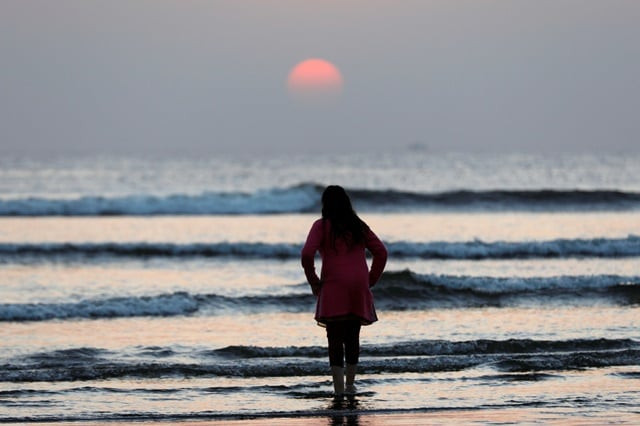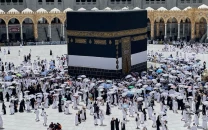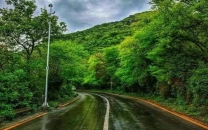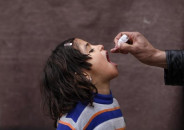Hope against hope rings in the New Year
Covid-19 disrupted every aspect of life we took for granted

So it ends, leaving us wondering if things will ever be the same. The jury is out on whether it actually was the worst year in history, but for those who lived through it, 2020 would definitely go down as the worst year of their lives. Or so we hope.
For all that we suffered, for everything that we learned or chose not to learn, the year that was supposed to herald an optimistic new decade was defined by one new term: Covid-19. The contagion first detected just days before 2020 began came to disrupt almost every aspect of daily life we took for granted. Before it was over, the virus would infect more than 83 million people worldwide and rob the lives of over 1.8 million of them. But with a second wave that still rages on and the possibility of the virus mutating into further strains, the legacy of Covid-19 will be informed by the wider global impact it has had.

Indeed, it is the destabilisation the pandemic has brought to the global economy that remains the biggest risk going into the future. With various types of vaccines set to be administered over 2021, the new year may spell recovery on the health front. But the recession it has ushered in around the world may create new challenges socially and politically that may endure far longer. If the history of pandemics is anything to go by, then Covid-19 may have laid the seeds for resetting established orders at all levels.
The International Labour Organisation has estimated that roughly 400 million full-time jobs were lost across the world when nations imposed initial lockdown restrictions. Workers’ income is estimated to have fallen by as much as 10 per cent, amounting to a loss of more than $3.5 trillion. An estimate also suggests that the world’s supply chain has suffered an impact of more than $300 billion that could last well into 2021.
Perhaps the most significant impact from the pandemic was suffered by the global tourism and travel industry. With air travel coming to a grinding halt as cases ballooned during the first wave, several budget airlines around the world collapsed in a matter of weeks. Even those with more robust finances now find themselves in dire straits. In Pakistan, the aviation sector has lost as much as Rs131 billion in revenue with the national flag carrier PIA suffering Rs45 billion in operational losses.
Another sector severely disrupted by Covid-19 has been that of education. Educational systems worldwide were inadvertently the first to respond to the pandemic as several countries announced near-total closures of schools, universities and colleges as a prelude to wider lockdowns. According to Unicef data, by then end of September, the education of over a billion learners worldwide was affected by the pandemic.
Globally and in Pakistan, Covid-19 first pushed and then cancelled various annual examinations. As a new normal emerged, schools in the country and abroad were forced to employ different alternating mixes of distance learning – a grand experiment the lessons of which will only be learnt in time.
But the pandemic’s silent legacy will be in the imprint it has left on all our collective psyches. Faced with uncertainty on both health and economic fronts, and forced to isolate out of fear of spreading the virus among our loved ones, a large number of people have reported symptoms similar to various anxiety disorders and PTSD.
“Covid-19 wreaked havoc not just on physical health, but mental as well,” said Dr Abdul Malik, an associate professor of neurology at Liaquat College of Medicine and Dentistry. “We have seen cases of high levels of anxiety that lead to symptoms of depression and even sleep and eating disorders,” he said.
Yet, as bleak as 2020 seemed, the year and indeed the pandemic itself had some silver linings. For much of the world, for instance, the virus accelerated a transition towards ‘work from home’ in sectors that allowed it. In Pakistan in particular, employers long resistant to the trend were forced to allow the practice, bringing the country at pace with the rest of the world on that front.
Where the Covid-19 crisis brought out the worst in some, it also brought out the best in humanity. From the sacrifices made by health workers who worked tirelessly all over the world to advances in human ingenuity as we sought to plug crucial supply shortages, the pandemic spurred on our most noble tendencies as well.
A year of varying degrees of lockdown also gave Mother Earth some much-needed respite from the excesses of human activity. Just a few weeks were enough to improve both air and water quality in many parts of the world. The year also revealed to us how dependent we are on our essential workers, without whose services most of us would be unable to survive.
Reflecting on 2020, Adviser to the Prime Minister on Health Dr Faisal Sultan acknowledged that Covid-19 impacted life beyond the healthcare sector. “The year taught us many lessons, both on the health front and beyond. All sectors … the economy as a whole… suffered. We all lost loved ones, and many continue to struggle with mental anguish,” he said. “It has been a year of improvisation.”
According to Dr Faisal, the Pakistan government was quick to realise that prolonged non-pharmaceutical interventions like lockdowns would have an unbearable fallout on low and middle-income economies. “That is why we formulated strategic targeted interventions that would mitigate the spread of Covid-19 and minimise economic fallout. This approach has been lauded globally.”
The prime minister’s adviser added that 2021 would be a year of further consolidation and improvement. “A vaccine will be available and will be administered to all frontline workers. We have already concluded an agreement with Sinopharm,” he said.
Still, as we move into the new year, we must remember that the threat is far from over. Until then, we must continue to take all precautions, as fatigued as we may be.
(WITH ADDITIONAL REPORTING FROM OUR CORRESPONDENTS IN ISLAMABAD AND KARACHI)



















COMMENTS
Comments are moderated and generally will be posted if they are on-topic and not abusive.
For more information, please see our Comments FAQ